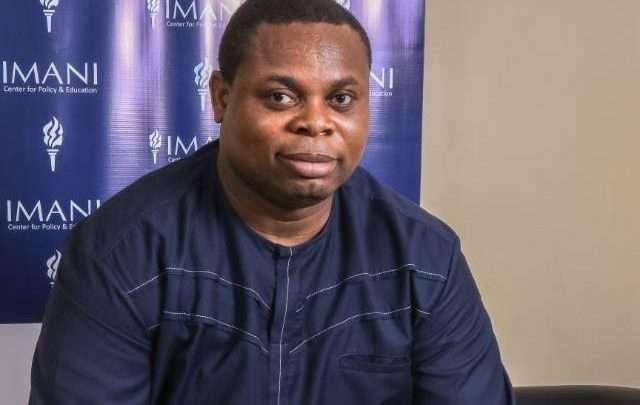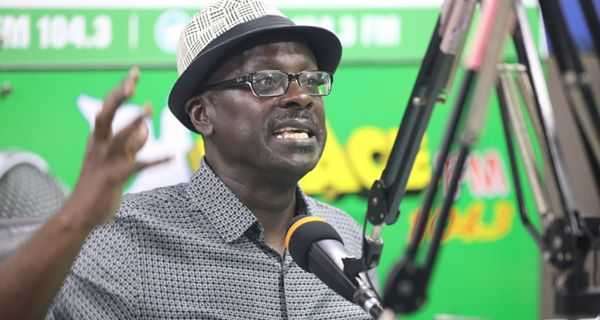According to Prof. Kwaku Azar Asare, four years ago, Ghanaians voted for a split parliament, reflecting a desire for balance and accountability. However, the recent shift to a supermajority represents a significant political realignment.
Prof. Asare noted that this dramatic swing highlights growing public dissatisfaction with the current system of governance.
He asserted that it also serves as a clear mandate for the 9th Parliament to prioritize comprehensive structural reforms aimed at addressing the underlying issues driving public discontent.
According to him, the message from the electorate is unambiguous, indicating that bold and transformative action is required to restore trust and improve the effectiveness of governance.
“Key priorities should include local government reform, legal education overhaul, judicial reform, a comprehensive code of conduct for public officials, financial management reform, campaign finance regulation, and anti-corruption measures”.
Prof. Kwaku Azar Asare
Prof. Asare further called on the 8th Parliament to expedite its remaining duties by prioritizing the passage of the Constitution Amendment Bill, 2021.
He emphasized the need for urgency, urging lawmakers to complete the legislative process and forward the bill to the President for assent without delay.
According to him, timely action on this critical reform would demonstrate Parliament’s commitment to good governance, constitutional progress, and the fulfillment of its legislative mandate before the end of its tenure.
Meanwhile, Franklin Cudjoe, President of IMANI Africa, echoed Prof. Asare’s sentiments, expressing surprise at the NPP’s decision to form a committee to investigate the reasons behind its resounding defeat.

He remarked that the causes of the party’s poor electoral performance should be self-evident, given the widespread public dissatisfaction with its governance.
According to Cudjoe, the severity of the electorate’s response was a clear message that did not require a committee to decipher.
He suggested that, rather than wasting time on fact-finding, the NPP should focus on addressing the underlying issues that triggered voter discontent, such as governance failures, unfulfilled promises, and declining public trust.
He remarked that the NPP exhibited “extreme laziness, rampant corruption, inherent arrogance, and a blatant disregard for public sentiment.”
He further criticized the party for being populated by what he described as “clever clowns” — individuals who may be intelligent but whose actions ultimately undermined the party’s credibility and performance.
Prof. Asare Calls for Thorough, Unbiased NPP Post-Election Review
Furthermore, Prof. Kwaku Azar Asare emphasized the importance of a comprehensive and objective post-election review by the NPP.
He stressed that the process must be thorough and free from bias, with the party’s most capable and experienced minds leading the assessment.
The goal, he argued, should be to confront hard truths, identify the root causes of electoral setbacks, and develop a strategic roadmap for the party’s renewal and future success.
Such an introspective exercise, Prof. Asare noted, is essential for rebuilding public trust, enhancing internal cohesion, and positioning the party as a more effective political force in the years ahead.
“The current leadership should have no involvement in assembling the post-mortem team and should ideally step aside in favor of an interim management committee to oversee the party’s affairs”.
Prof. Kwaku Azar Asare
He also pointed out that the NPP campaign teams have effectively become “functus officio”, meaning their official duties have come to an end following the conclusion of the electoral process.
With the campaign period over, their mandate to mobilize support and influence voter behavior has expired.
Prof. Asare implied that it is now time for the party to shift focus from campaign activities to introspection, accountability, and strategic planning for the future.
This transition, he suggested, is crucial for the party’s reorganization and reorientation in the wake of the election’s outcome.
He further criticized the NPP for continuing to engage in propaganda, arguing that the party has failed to reflect on its electoral defeat with the seriousness it deserves.
Prof. Asare observed that the party appears to have “learned nothing and forgotten nothing,” suggesting a refusal to confront the realities of its setbacks.
By clinging to old tactics and rhetoric, the NPP risks missing a crucial opportunity for self-examination and growth.
Prof. Asare emphasized that genuine progress requires honest reflection, acceptance of mistakes, and a willingness to adopt new strategies that align with the evolving expectations of the electorate.
READ ALSO: Syrians Celebrate On First Friday Prayers Post Al-Assad Fall




















